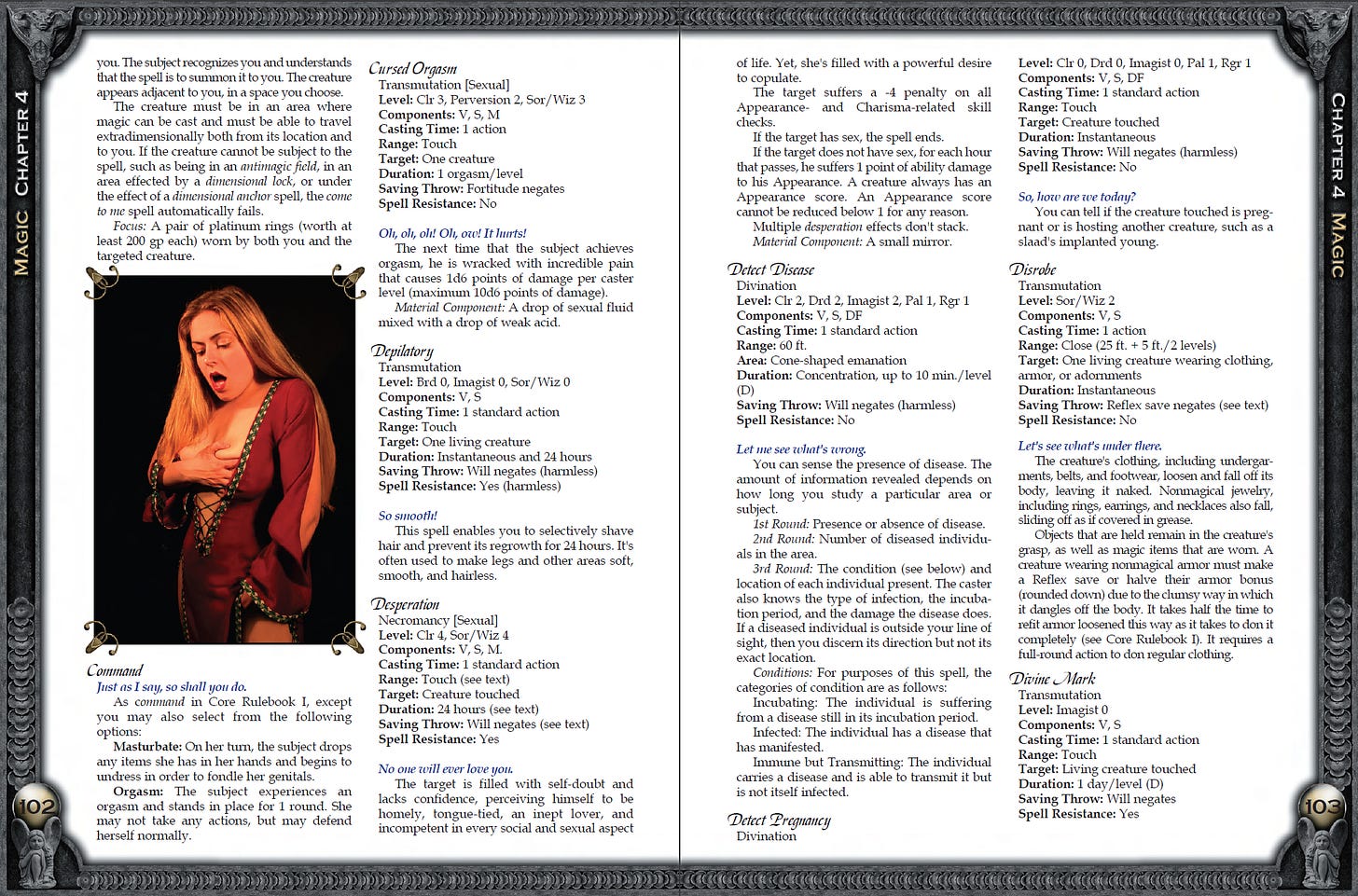That time D&D squashed a third-party book with 190 pages of rules for sex
The Book of Erotic Fantasy was the first true test of the Open Gaming License.
It’s safe to say that the news about Dungeons & Dragons’s update to its third-party license has escaped the tabletop RPG industry and fandom to become a big story.
After a draft of the Open Gaming License v1.1 was leaked to Gizmodo, the story’s been picked up by Forbes, “copyleft” writer Cory Doctorow, and law YouTuber Legal Eagle.
Legal Eagle’s Devin James Stone says that “absolutely the best breakdown of the [OGL] contracts themselves” comes from Opening Arguments, a top 100 podcast on Patreon. Their host and legal expert Andrew Torrez doesn’t mince words when he calls the Gizmodo article a “Critical Hit (Piece).”
“Bad faith”: Opening Arguments reacts to the Gizmodo article on the OGL
Opening Arguments’s position is that the Gizmodo piece is “irresponsible fearmongering, it’s tremendously unfair, and that most of the claims made in it that are gaining traction are either out-and-out false or materially misleading.” (That said, I know and like the author of the Gizmodo piece and appreciate that Opening Arguments cared about getting their pronouns right.)
Opening Arguments goes point-by-point in their show notes, but the only strong reservation they have over OGL 1.1 is around Wizards having a “nonexclusive, perpetual, irrevocable, worldwide, sub-licensable, royalty-free license to use [your] content for any purpose.” According to Torrez, it gives Wizards leeway to take characters in an adventure I write and make a TV show out of them, but Torrez also calls it “probably” unenforceable.
Torrez says the community should focus attention on removing that clause, and hey—Wizards said in an announcement yesterday that they’re dropping that language.
But I want to look at what Opening Arguments has to say about the termination clause:
When you’re community-building, and you’re licensing your IP to fans or 3P creators, every agreement gives the licensor the ability to terminate that license when the 3P or the fan creates something that’s grossly inconsistent with the licensor’s intent.
Suppose someone creates “Sex Dungeons & Dragons,” complete with the saving throw you have to roll when you’re copulating with the half-Orc, and it’s super inappropriate for kids, and it’s also sexist and gross. Under the old OGL 1.0, so long as it was just a generic Sex Dungeon and not set in the Seven Mounting Heavens of Celestia, there was nothing WotC could really do about it.
This example is hilarious to me because it literally happened before.
The Book of Erotic Fantasy
Back in 2000, in parallel to the OGL, Wizards of the Coast had a more restrictive license for the 3rd edition of D&D called the d20 System Trademark License, which had a product badge.

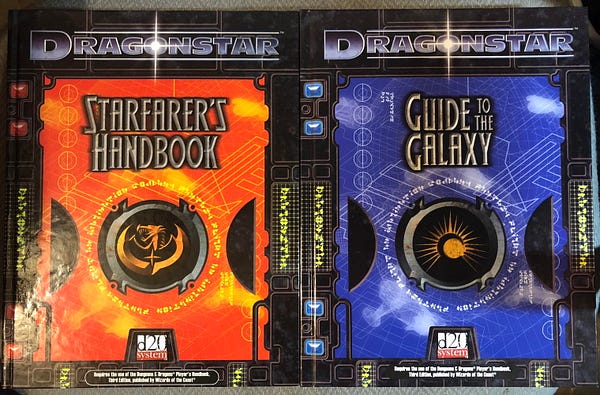
Come 2003, an ex-Wizards employee tried to release the Book of Erotic Fantasy under the d20 STL. (The absolute most misogynistic debate bro I've ever had the displeasure of sharing a D&D table with was a proud owner of it.)
This book mimics the trade dress of the 3.5e D&D books, with body fonts, chapter breaks, and similarly skeuomorphic cover design. In lieu of fantasy illustrations, the Book of Erotic Fantasy uses photographs of nude models. It includes a spell called disrobe that makes someone's clothes fall off if they fail a Dexterity save and expands the command spell to force someone to have an orgasm if they fail a Wisdom save. (Sorry, it’s 3.5e: I mean Reflex and Will saves.)
The title itself is even meant to mirror the Book of Exalted Deeds and the Book of Vile Darkness. Wizards released two books named for legendary artifacts in D&D lore that Wizards declares them as product identity (that is, their intellectual property) in the OGL. Like those books, the Book of Erotic Fantasy’s magic items section includes an artifact named the Book of Erotic Fantasy, with similar mechanics to those other two metafictional artifacts.
Wizards rewrote the d20 STL to include a clause about "community standards of decency" expressly to spike this book. They also added a limit on how big you could put the words "Dungeons & Dragons" on your cover, based on its draft designs.
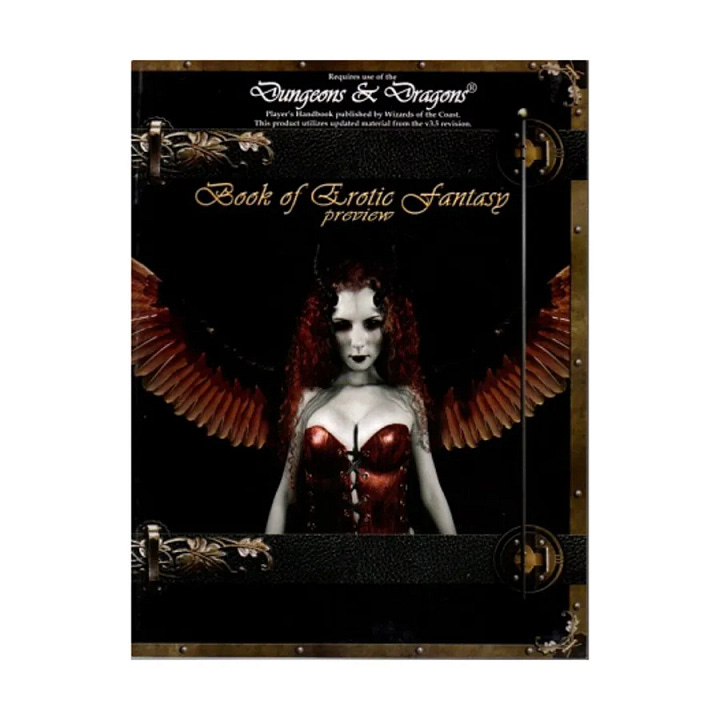
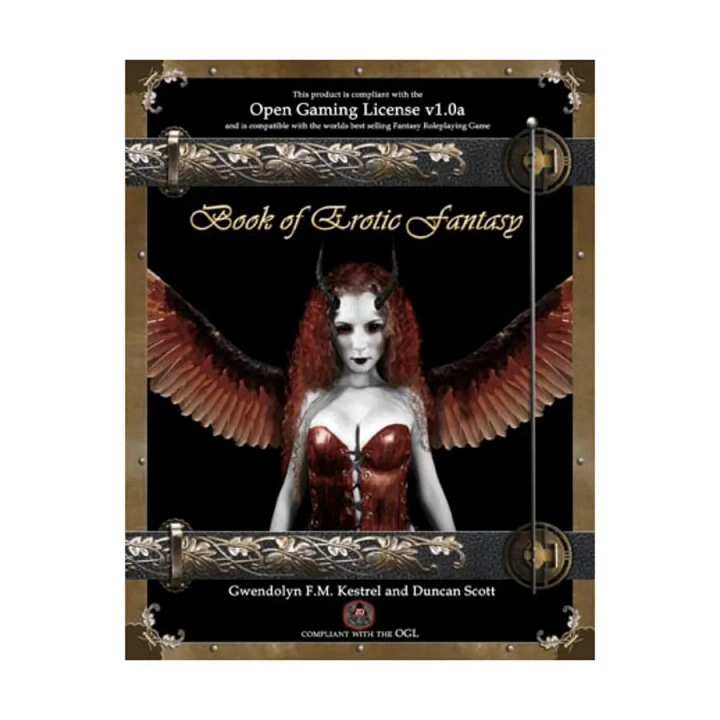
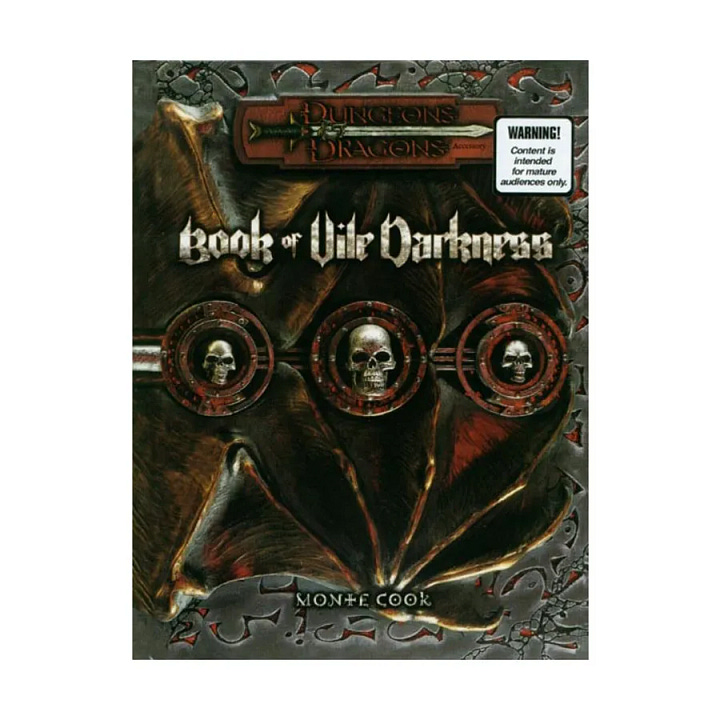
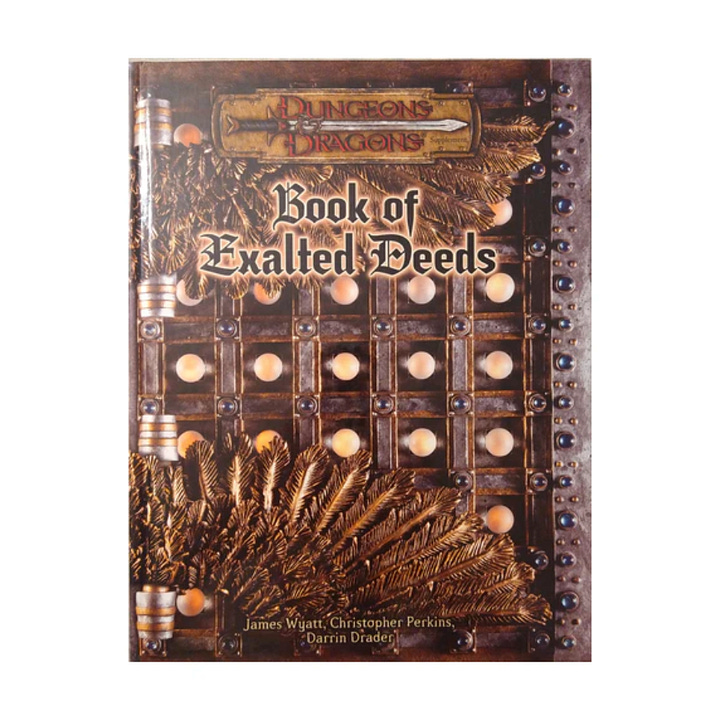
The Book of Erotic Fantasy was the first notable work to pivot to the OGL, back in a time when the d20 product badge was seen as a sign of legitimacy. Although the next iteration of the OGL looks like it’s bringing product badges back, this will always be my favorite footnote in D&D’s product badge history.



